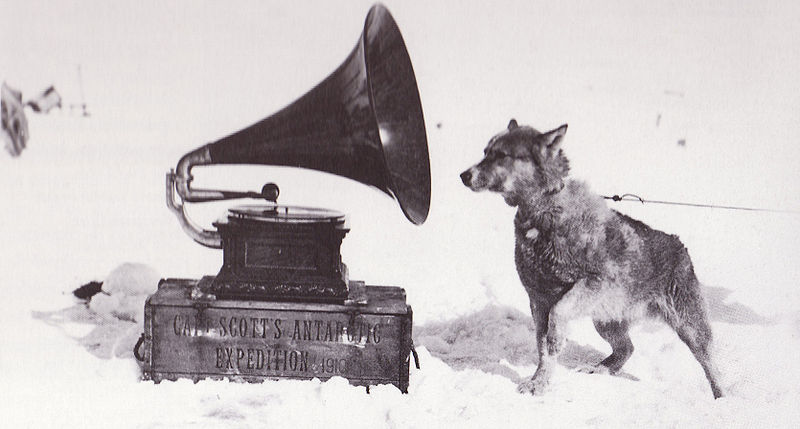
Figure 1 – Herbert Ponting’s “Sled dog listening to gramophone, 1910.” From the Wikicommons and in the public domain.
There is another Ponting image that I believe is very telling, and it is shown in Figure 1. The image is of one of the sled dogs listening intently to a recording being play on a gramophone. People of my generation will remember the RCA Victor Record Label (Figure 2) with some fondness. We thought that we were at the height of technology, but really weren’t. Indeed, there was always the sense that we were moving toward something wonderful and unknown.
So we have to look at Ponting’s “dog and gramophone” and realize that the image was taken on a glass plate negative barely a century ago. When you went to the Antarctic in those days you were totally cut off from the world. There was no radio contact with the outside world. Indeed the trapped members of the Shackleton Trans-antarctic Expedition didn’t even know the details of the horrible World War, which nearly halted them in England.
It is tempting to say something cliché like “that dog and gramophone represents a transitional point in technological history.” However, the fact is that every point in time represents a transitional point in technological history. We are as separated from the next century as Scott and Ponting were from us. Indeed, given the exponential growth rate of technology, perhaps, we are more so. It’s a marvelous thought.
You might question the word “marvelous.” But it is the right word. Technology is marvelous because it has consistently increased inter-human communication, even inter-species communication. And we all get a little thrill at the idea that our technology may some day enable us to communicate with other beings from other worlds. Technology pushes the boundaries of our knowledge ever outward.
Sometimes it is tempting to talk about the evils of technology. However, technology is not intrinsically good or evil. As Shakespeare* pointing out that fault is in ourselves. Science and technology intrinsically increase human choices and possibilities. If we make the choice to be underlings, that fault is in ourselves not in our technology.
*”The fault, dear Brutus, is not in our stars but in ourselves that we are underlings.” Julius Caesar, Act 1, scene 2.

